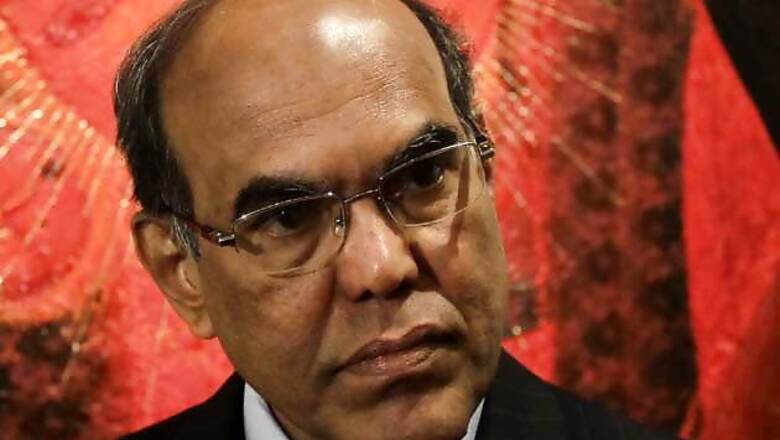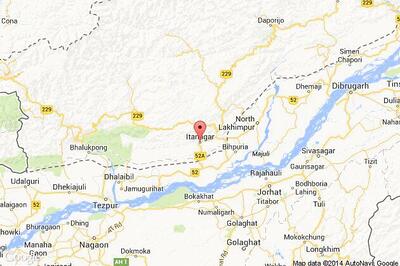
views
Bangalore: The Reserve Bank of India (RBI) would further ease its monetary policy if inflation comes down, the central bank's governor D Subbarao said Saturday. "We hope that as we go forward, inflation will come down and if that happens, it would be possible for the Reserve Bank to further ease monetary policy," Subbarao asserted at an interactive session of the Federation of Karnataka Chambers of Commerce & Industry (FKCCI).
According to the commerce and industry ministry, the annual rate of inflation, based on monthly WPI (wholesale price index), stood at 6.84 per cent (provisional) in February against 6.62 per cent in January and 7.56 per cent in February 2012. Provisional annual inflation rate based on CPI (consumer price index) for February was 10.91 per cent as against 10.79 per cent in January.
Noting that the central bank was sensitive to the importance of a competitive interest rate regime to encourage investment, Subbarao said in the March 19 policy statement, he had clarified that the stage for further monetary policy easing was quite limited. "In our March 19 policy statement, we said that the stage for further monetary policy easing is quite limited," he said.
The RBI will, however, take a call on interest rates at its annual monetary policy May 3 in Mumbai when it will also project its growth estimates in terms of the national gross domestic product (GDP) and inflation rate for the new fiscal (2013-14). "Various investment banks and think tanks have projected the growth numbers for this fiscal at slightly higher than last year's growth rate of five per cent. Many international governors told me India's growth rate would be around six per cent this year. We have not yet made our projections. We will announce them on May 3," the governor pointed out.
Admitting that even six per cent economic growth was not sufficient, he said India should aspire to grow at eight-nine per cent or even in double-digits, though it was not possible even in next fiscal (2014-15). "A growth rate of six per cent is not enough. For a country, which has about 300 million people below poverty line, six per cent growth is just not enough. We need to grow at eight or nine per cent and indeed in double-digit year on year over the next 10 years in order to bring those hundreds of millions of people above the poverty line," Subbarao observed.
Delivering a lecture on "India's Macroeconomic Challenges - Some RBI Perspectives", the governor said though it was not possible to achieve a 10 per cent GDP growth next year, the country should at least aspire for that. "For a long time, we have seen our East Asian tigers like Hong Kong, Singapore, Korea and Taiwan growing at eight-nine per cent and 10 per cent. We were quite dismissive saying they were small economies and India is a large economy and it cannot grow at that high rate. But China has demonstrated it emphatically, consistently for the last 15 years that a large economy can grow year-on-year above 10 percent and that is both a challenge and an opportunity for India. We need to grow at a faster pace in the next 10 years," Subbarao reiterated.
Asserting that India's long-term growth drivers were intact, the governor said demographic dividend, young population, capacity levels and rising productivity levels could lead to higher and faster growth rate. "Though India growth story is intact, it is not inevitable. If we don't do right things in the right time, we will squander an opportunity. It is very important that we think through all the short-term and medium-term challenges so that we can exploit the potential of this country," Subbarao added.




















Comments
0 comment